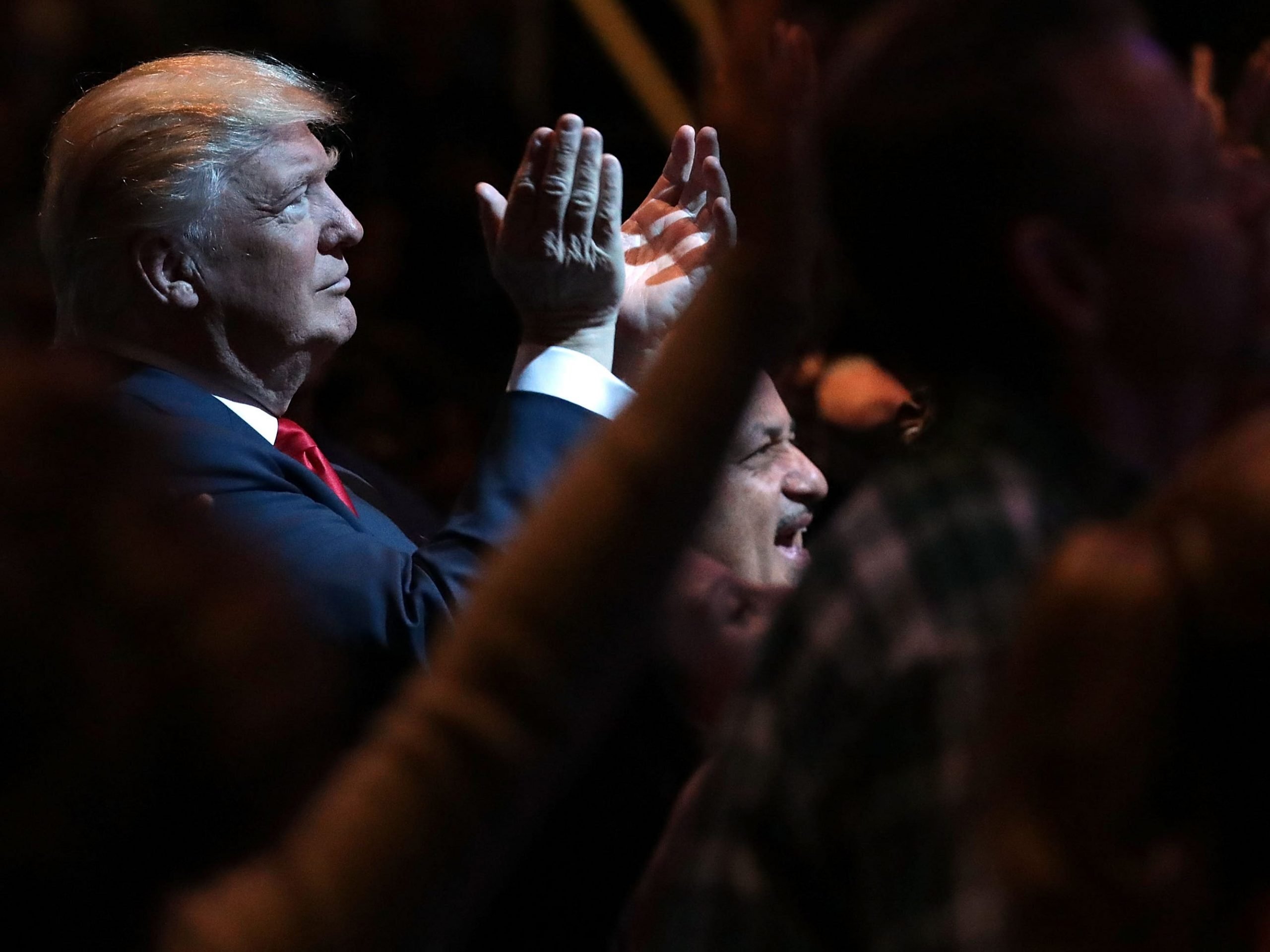
Chip Somodevilla/Getty Images
- President Trump privately criticizes his Christian supporters, viewing them with contempt and skepticism, according to a report in The Atlantic.
- In 2015, according to former Trump attorney Michael Cohen, Trump blasted leaders of faith, saying that “they’re all hustlers.”
- For years, Trump has courted religious leaders and wedded his priorities to their agenda, which include anti-abortion legislation and appointing conservative judges to the federal bench.
- President Trump frequently attacks Joe Biden on the issue of faith, even saying that “there will be no God” if Biden is elected.
- Visit Business Insider’s homepage for more stories.
President Trump, who was elected to office from strong evangelical support, privately derides his supporters of faith, viewing them cynically and with contempt, according to a report in The Atlantic.
For years, Trump has courted religious leaders and wedded his priorities to their agenda, which include anti-abortion legislation, appointing strict constructionists to the federal judiciary, and reinforcing protections for student prayer in public schools.
In 2015, when Creflo Dollar, a Black megachurch pastor and supporter, asked his congregants to help him fund a $60 million private Gulfstream jet, Trump was reportedly fascinated with the story, according to Michael Cohen, then Trump’s personal attorney.
Cohen told The Atlantic that Trump liked the “scam” and said that Dollar was “full of s—.”
“They’re all hustlers,” Trump said, according to Cohen.
Several former GOP aides also told The Atlantic that they "have heard Trump ridicule conservative religious leaders, dismiss various faith groups with cartoonish stereotypes, and deride certain rites and doctrines held sacred by many of the Americans who constitute his base."
The aides also said that Trump, who was not known for being religious before becoming president, saw the conservative evangelical base "as a kind of special-interest group" that he could use .
"His view was 'I've been talking to these people for years; I've let them stay at my hotels—they're gonna endorse me. I played the game,'" a former aide said to The Atlantic.
When asked by The Atlantic for a response to the allegations, a White House spokesperson said that "people of faith know that President Trump is a champion for religious liberty and the sanctity of life, and he has taken strong actions to support them and protect their freedom to worship."
"The president is also well known for joking and his terrific sense of humor, which he shares with people of all faiths," they added.
In public, Trump is seen as the savior for a country that many conservative Christians feel is experiencing a moral decline. The nominations of Neil Gorsuch, Brett Kavanaugh, and Amy Coney Barrett to the Supreme Court have only strengthened the resolve that many in the faith community have with the president.
Trump has attacked Democratic presidential nominee Joe Biden on his faith on numerous occasions, and at a recent rally in North Carolina, went as far as saying that "there will be no God" if the Biden is elected.
In an interview with the Associated Press, Ryan Burge, a political scientist at Eastern Illinois University, stated that Trump has long tried to drive a wedge between evangelical voters and Democrats.
"Trump wants to tap into that very base feeling of 'white Christianity is under attack,'" Burge said. "It's all posturing to set up this God gap, where if you're a Christian — especially a white Christian — the Republican Party is going to protect you."
